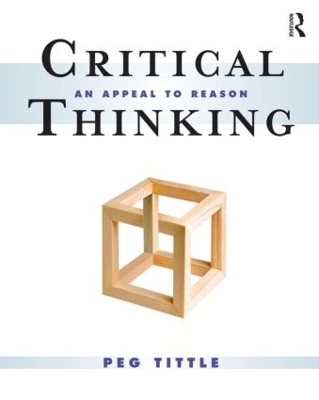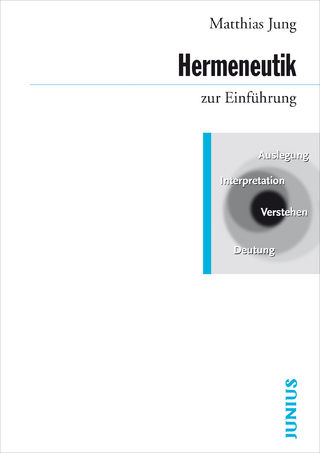
Critical Thinking
Routledge (Verlag)
978-0-415-99714-0 (ISBN)
Special features include:
• an emphasis on the constructive aspect of critical thinking—strengthening the arguments of others and constructing sound arguments of your own—rather than an exclusive focus on spotting faulty arguments
• actual questions from standardized reasoning tests like the LSAT, GMAT, MCAT, and GRE
• graduated end-of-chapter exercises, asking students to think critically about what they see, hear, read, write, and discuss
• numerous sample arguments from books, magazines, television, and the Internet for students to analyze
• many images for critical analysis
• analyzed arguments that help students to read critically and actively
• an extensive companion website for instructors and students
A companion website features:
• for instructors: an extensive instructor’s manual; a test bank; and PowerPoint slides
• for students: extended answers, explanations, and analyses for the exercises and arguments in the book; supplementary chapters on logic and ethics; downloadable MP3 study guides; interactive flash cards; and thinking critically audio exercises.
www.routledge.com/textbooks/tittle
Peg Tittle has taught critical thinking and applied ethics at both the university and high school levels. She is the author of What If…Collected Thought Experiments in Philosophy and the editor of Should Parents be Licensed? and Ethical Issues in Business: Enquiries, Cases, and Readings.
Chapter 1: Critical Thinking 1.1 What is critical thinking? 1.2 What is critical thinking not? Chapter 2: The Nature of Argument 2.1 Recognizing an Argument 2.2 Circular Arguments 2.3 Counterarguments 2.4 The Burden of Proof 2.5 Facts and Opinions 2.6 Deductive and Inductive Argument Chapter 3: The Structure of Argument 3.1 Convergent, Single 3.2 Convergent, Multiple 3.3 Divergent Chapter 4: Relevance 4.1 Relevance 4.2 Errors of Relevance Chapter 5: Language 5.1 Clarity 5.2 Neutrality 5.3 Definition Chapter 6: Truth and Acceptability 6.1 How do we define truth? 6.2 How do we discover truth? 6.3 How do we evaluate claims of truth? Chapter 7: Generalizations, Analogies, and General Principles 7.1 Sufficiency 7.2 Generalizations 7.3 Analogies 7.4 General Principles Chapter 8: Inductive Argument – Causal Reasoning 8.1 Causation 8.2 Explanations 8.3 Predictions, Plans, and Policies 8.4 Errors in Causal Reasoning
Supplemental Chapters on the Companion Website: 1. Categorical Logic 2. Propositional Logic 3. Thinking Critically About Ethical Issues
| Verlagsort | London |
|---|---|
| Sprache | englisch |
| Maße | 203 x 254 mm |
| Gewicht | 1320 g |
| Themenwelt | Geisteswissenschaften ► Philosophie ► Allgemeines / Lexika |
| Geisteswissenschaften ► Philosophie ► Logik | |
| Sozialwissenschaften ► Pädagogik | |
| Schlagworte | Denken |
| ISBN-10 | 0-415-99714-3 / 0415997143 |
| ISBN-13 | 978-0-415-99714-0 / 9780415997140 |
| Zustand | Neuware |
| Informationen gemäß Produktsicherheitsverordnung (GPSR) | |
| Haben Sie eine Frage zum Produkt? |
aus dem Bereich


